Hong Kong is giving ecotourism a boost with plans to help more rural eateries and lodging facilities. Community leaders and industry players have welcomed the move, saying it will spur economic growth and promote urban-rural integration. Wu Kunling reports.
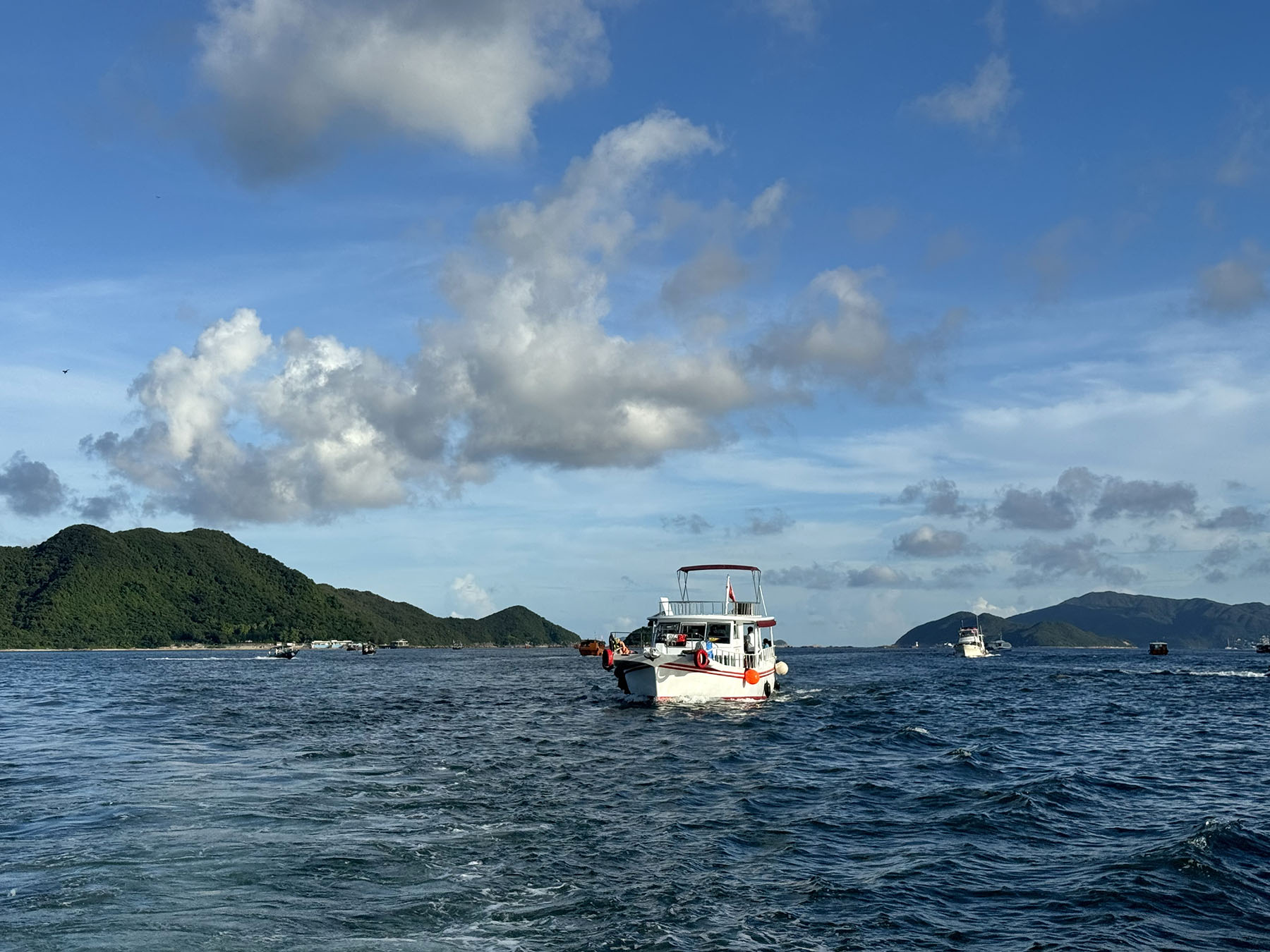
From Yim Tin Tsai pier, a stroll along tranquil village paths leads to a small restaurant and store nestled under shady trees, serving traditional Hakka delicacies like tofu pudding, herbal tea and cha kwo (steamed sticky rice dumplings).
Run by Kito Chan and her family for nearly a decade, the eatery also hosts occasional workshops, showcasing traditional local cuisine like bamboo rice.
Set in the inner waters of Hong Kong’s Sai Kung district, the picturesque island village of Yim Tin Tsai boasts a rich history spanning over 300 years, with Hakka and Catholic cultures seamlessly intertwined. Its name points to its defining feature — a salt pan — and it is the city’s only salt pan still in operation. Stepping into the restaurant, visitors can relax and view the ancient pan. The place is almost the only “refueling point” on the island and is featured in countless travel guides.
READ MORE: Party on the beach
But, Chan laments that the eatery’s revenue has fallen short of covering basic expenses this year, necessitating subsidies from family members’ other jobs.
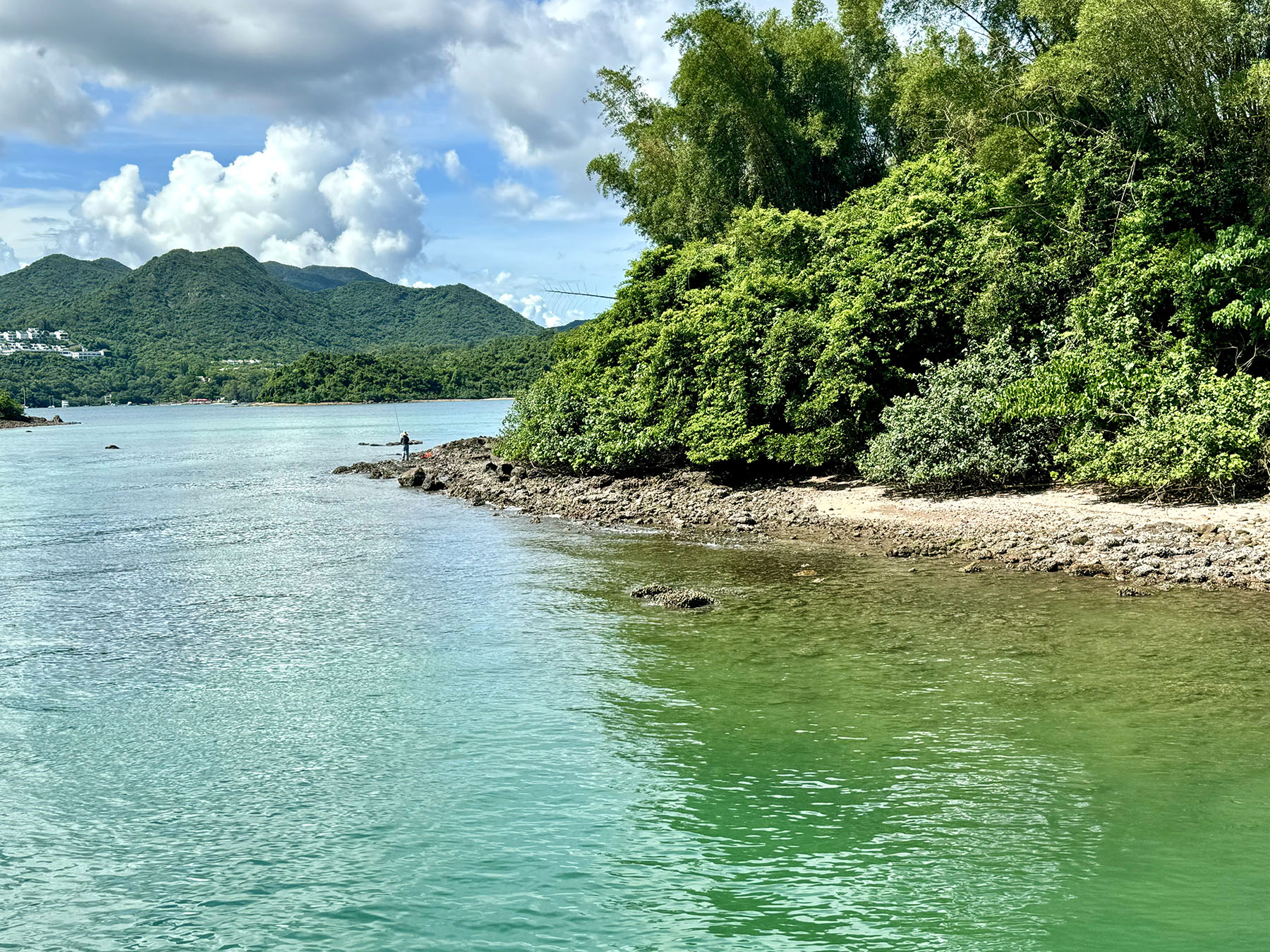
Commercially illogical
The Hong Kong Special Administrative Region government has stepped in, actively championing the growth of ecotourism through a series of measures in recent years. To achieve this goal, representatives of various sectors, including lawmakers and government officials, have held extensive discussions about supporting and improving ecotourism services and upgrading related amenities.
But, Chan — a native of the island — says running a supply station in the rural areas “doesn’t align with commercial logic”.
She explains that in remote areas like her village, coupled with a lack of large-scale publicity, tourists come only on weekends and public holidays, barring adverse weather conditions. Even on holidays, however, tourist numbers are modest, consisting mainly of hikers, school groups and visits arranged by travel agencies, and have gone down significantly following the COVID-19 pandemic.
Meanwhile, the operating costs never decrease notably compared to urban areas, especially transportation costs. Taking Chan’s eatery as an example, shipping is mostly by chartering boats. The biggest costs, says Chan, come from renovations to meet licensing requirements — a process that had taken her almost two years with a price tag of HK$1 million ($128,000).
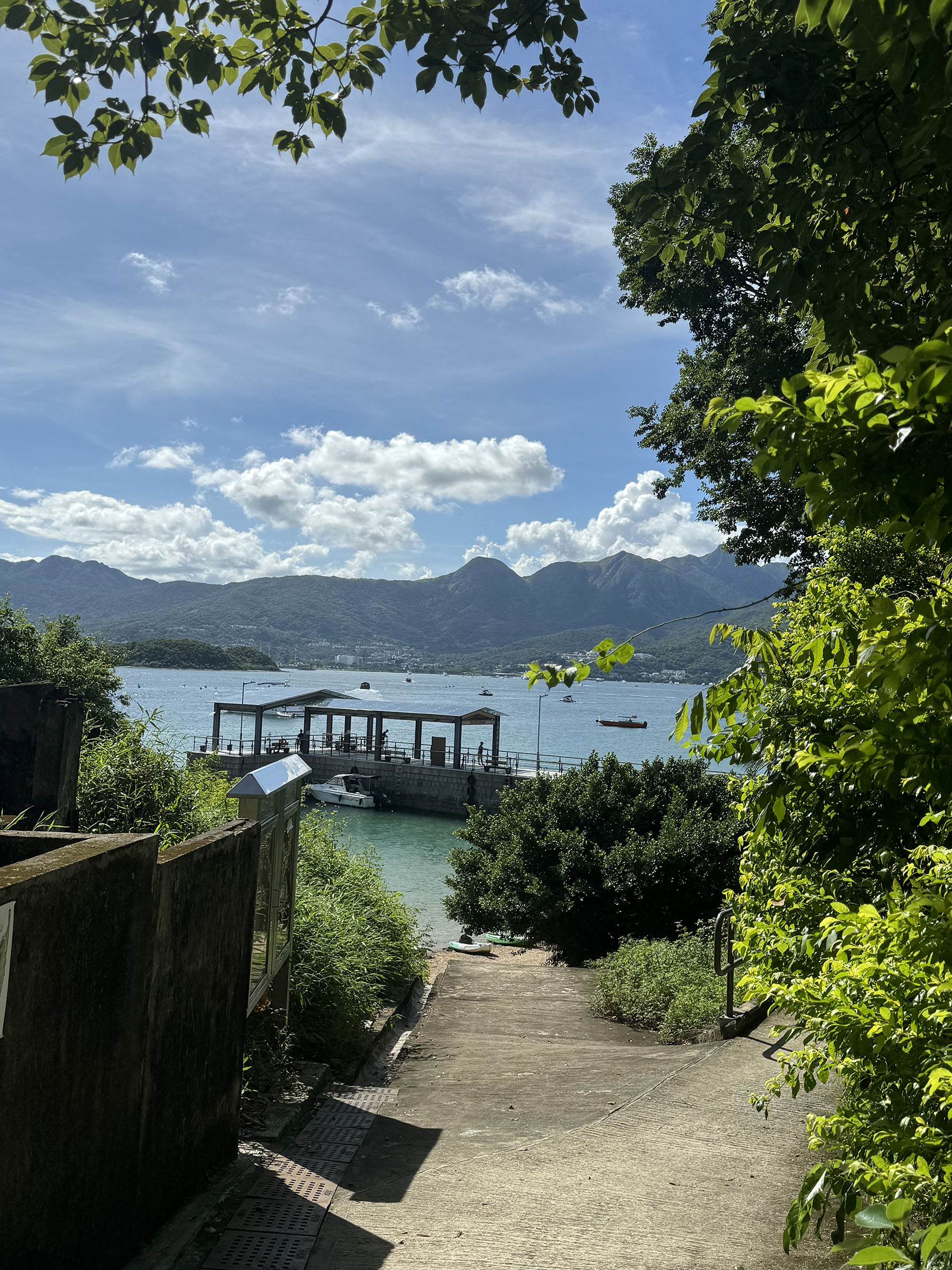
To get the business off the ground, her family undertook a range of projects, such as adjusting the kitchen layout, redesigning septic tanks, and installing underground drainage systems and fire prevention equipment. They had to coordinate with multiple departments, including the Food and Environmental Hygiene Department, the Fire Services Department and the Countryside Conservation Office in making various adjustments before approval could be obtained.
In Hong Kong, the standards for acquiring a restaurant license in rural areas are as stringent as those for urban areas. This has deterred many people, mainly the elderly, from starting a small rural business. Chan says few can afford high renovation costs, and the red tape is also a major hurdle.
She recalls that her family once operated holiday flats on Lantau Island but eventually had to give up due to the high renovation costs for license renewal.
Despite the obstacles, her family has strong feelings for their home turf, and aims to keep the business going as long as possible. They urge the authorities to show understanding when granting licenses for rural entities, saying increased village participation will facilitate smoother business operations, and a robust business environment will foster stronger community ties.

New opportunities
The SAR’s ecotourism initiatives have brought hope, with new opportunities potentially paving the way for the revitalization of the ancient Hakka community. In the wake of the government’s mega plan for developing the Northern Metropolis, which boasts abundant eco-resources, various sectors of the community have called for barriers to be removed to unlock the economic potential and promote ecotourism in the rural areas.
In the latest Policy Address unveiled in September, the challenges faced by Chan and her fellow villagers were acknowledged. To enhance the growth of local thematic immersive tours and elevate Hong Kong as an international culinary hub, the government has pledged to refine application guidelines to facilitate the operation of homestays and holiday camps in rural areas.
Support will be given to transforming village houses into either homestays or community eateries. A government source said the initiative is in line with the broader goal of promoting urban-rural integration.
At a Legislative Council meeting in March focusing on boosting marine tourism, Secretary for Culture, Sports and Tourism Rosanna Law Shuk-pui said the government is committed to exploring more avenues for easing regulations, especially with regard to applications for operating rural guesthouses and food businesses.

She pledged to introduce more optimization measures, saying her department had helped 11 guesthouses, takeout shops and restaurants to obtain licenses so far. The businesses span diverse locations like Yim Tin Tsai, Lai Chi Wo — a centuries-old Hakka walled village in the northeastern New Territories — and the 400-year-old village of Kuk Po which is adjacent to the Sha Tau Kok Frontier Closed Area.
Later in a LegCo meeting in July, Undersecretary for Development David Lam Chi-man says efforts will be made to create new business opportunities in villages and enhance visitor experiences of rural culture. The authorities are also exploring other measures under the existing Small House Policy framework to promote the establishment of village shops, restaurants and home-stay lodging facilities.
More government departments are joining the initiative, laying the groundwork for the development of ecotourism.
According to a survey on tourism conducted by the Junior Chamber International Hong Kong, more than 40 percent of 410 overseas respondents from 35 countries and regions interviewed said ecotourism is their top choice when visiting Hong Kong, surpassing historical sites, arts and cultural attractions, food and shopping, and architectural landmarks.
Chinese mainland travelers have ample choices, as they are able to book everything from budget-friendly day trips to longer, curated ecotourism excursions online.
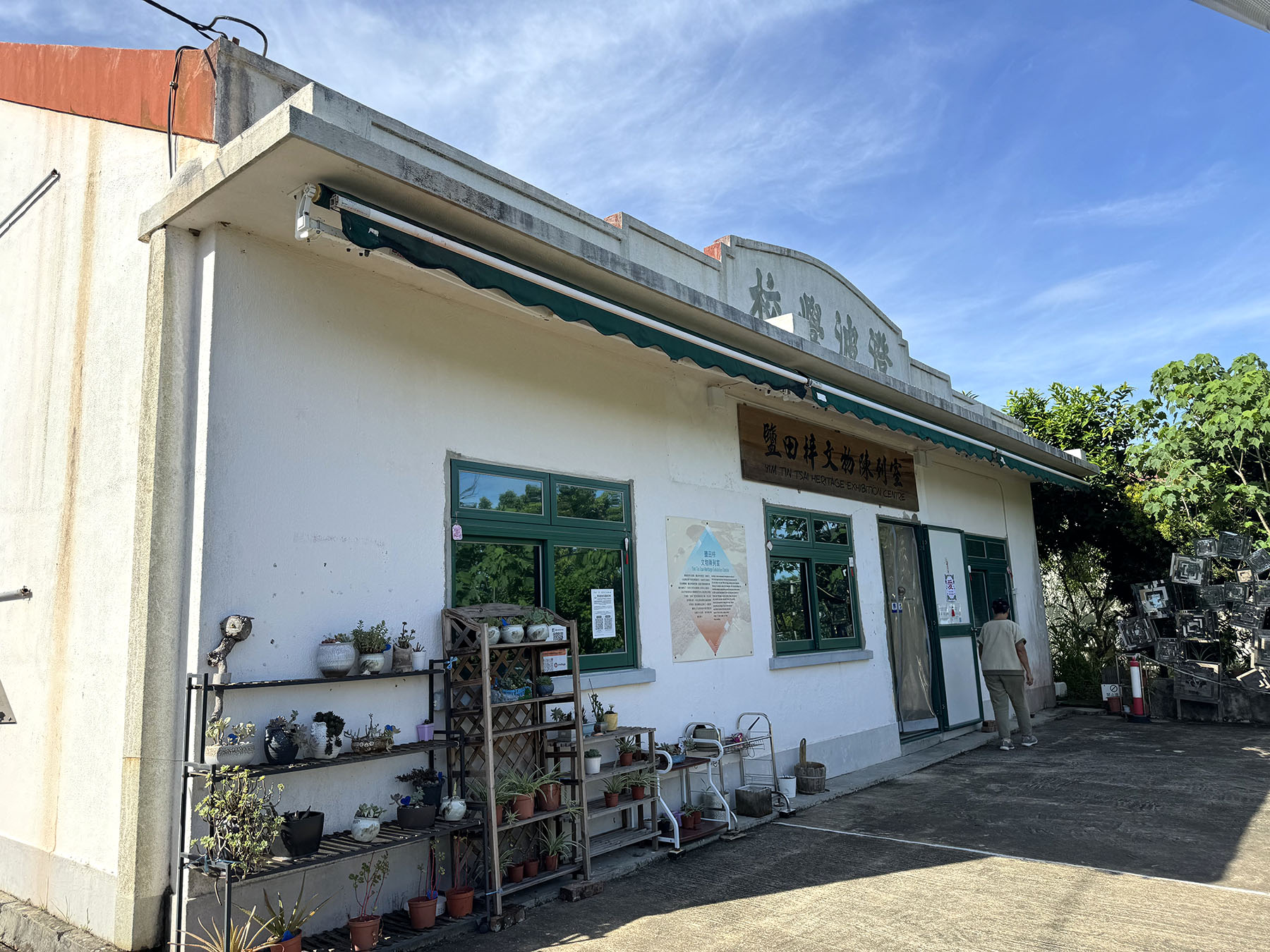
The trend of individual travel is also strong, with social media platforms like Xiaohongshu providing popular guidelines, including one giving details of hiking the MacLehose Trail posted in August last year, drawing more than 110,000 responses. This is largely driven by tourists from Guangdong province whose geographic proximity to Hong Kong, along with convenient transportation, make them more eager to explore the city’s countryside. Increased mutual travel flow within the Guangdong-Hong Kong-Macao Greater Bay Area is now a tourism industry consensus.
A report last year by Tongcheng Travel — an online travel platform on the mainland — said there has been strong reciprocal travel interest between Guangdong and the Hong Kong and Macao SARs. Residents from both cities were the second- and third-largest groups searching for information on travel to Guangdong cities, while Guangdong residents led searches for the SARs.
According to mainland railway data, 7.67 million passenger trips were made to in Hong Kong’s West Kowloon Station in the first half of this year. Nearly 80 percent (6.1 million trips) of them were from Guangdong, including 2.86 million trips from Shenzhen — a year-on-year increase of 21.6 percent.
Travel within the Greater Bay Area is expected to grow, a view shared by the Hong Kong-based Asia Tourism Exchange Center. In a recent report, the nonprofit organization highlighted factors that have boosted tourism to Hong Kong and Macao, including the expanded Individual Visit Scheme, multi-entry visas for Shenzhen and Zhuhai residents, and smoother Customs clearance procedures, while noting an upcoming policy that would allow Guangdong vehicles into Hong Kong.
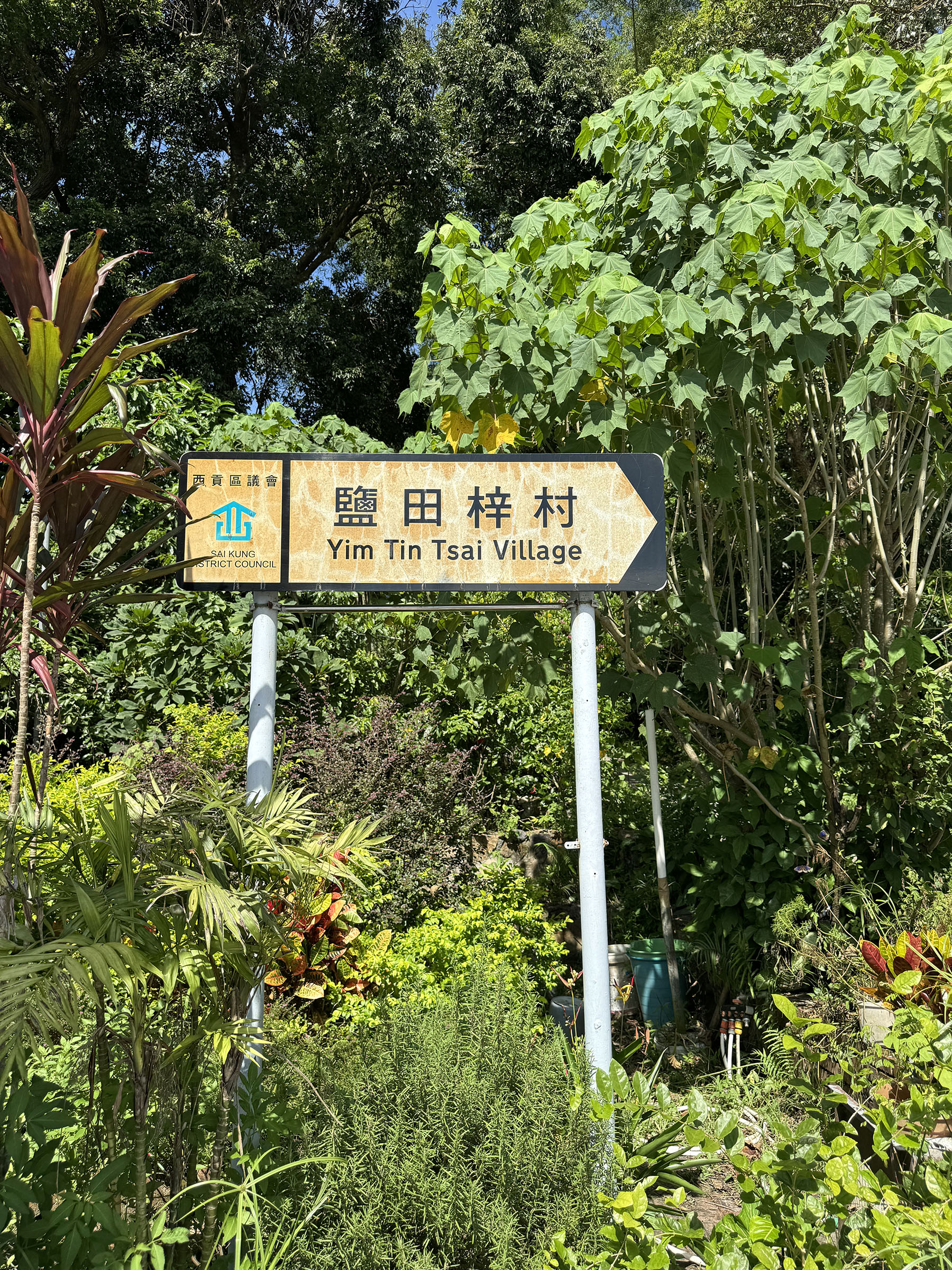
Breaking policy barriers
According to Lee Koon-hung, chairman of the Heung Yee Kuk’s Sha Tau Kok District Rural Committee — a statutory advisory body representing the indigenous residents of the New Territories — the main challenge is turning the tourist influx into economic growth, with diverse dining and lodging facilities as the primary focus.
Lee, who is responsible for promoting sustainable development in rural areas, says he has received enquiries about rural tourism from rural residents and tourists. Their needs are mutually compatible, but have been hindered by policy constraints.
For instance, many tourists have inquired about camping in the New Territories countryside, with some interested in glamping — a blend of “glamorous” and “camping”. Unlike traditional camping, where tents are carried in and erected by campers, glamping provides camp-style accommodation, with utilities, air conditioning and hot water just like in hotels. Some rural residents are also considering starting such ventures.
But those seeking to change the use of agricultural land in the New Territories face a complex process that may involve multiple government departments and take years, says Lee.

He suggests that the government lower application fees for temporary waivers on rural land to be used for recreational purposes, and set standards to ease applications. He believes relaxing such rules will foster investment in related tourism ventures.
The committee also wants the government to amend outline zoning plans in a proposal submitted ahead of the latest Policy Address, calling for rezoning more land for recreational use.
Lee proposes that restrictions on the recreational fishing sector be eased, enabling mariculturists with industry consent letters to offer a wider range of services, including activities like kayaking and snorkeling.
He says it’s important to provide basic cooking services as mariculturists are only permitted to sell specific food and beverages, such as instant noodles, pre-packaged or pre-cooked snacks.
“People on fishing trips can thus enjoy freshly processed seafood on boats, making it an incredibly appealing tourism activity,” he says, adding that mariculture rafts in Sai Kung, Sha Tau Kok and Tai Po are ideal for offering such a unique experience.
Favorable policies, he says, will enhance tourist experiences and create more jobs that will be a boon for ecotourism.
Contact the writer at amberwu@chinadailyhk.com


